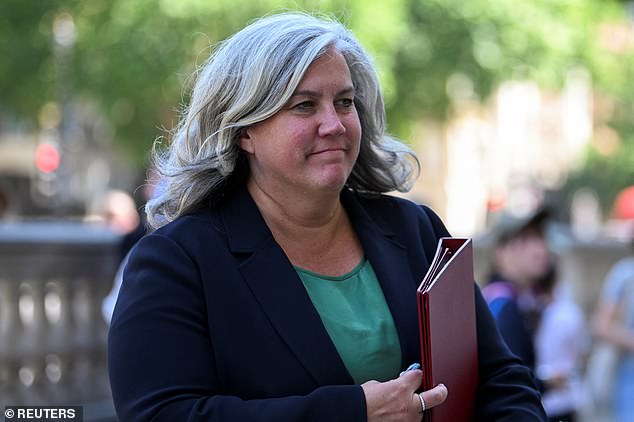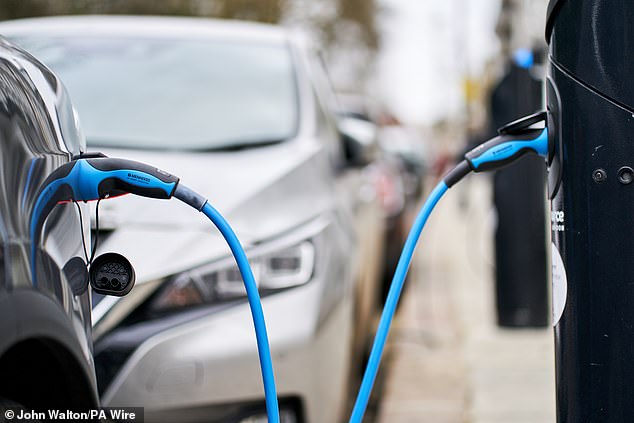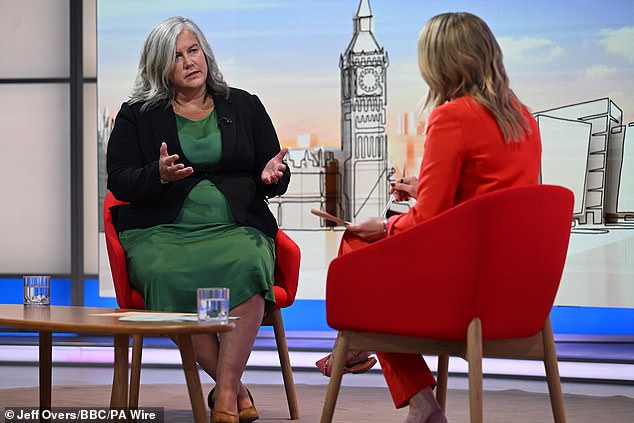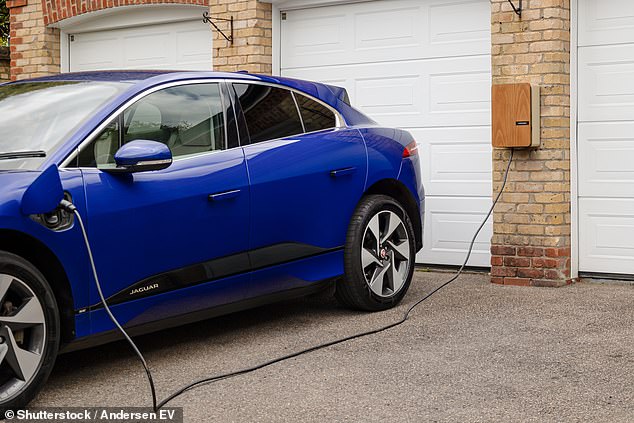Critics have called for Labour to scrap a taxpayer-funded £700million pot of funding for electric vehicles ahead of the measures being unveiled this week.
Heidi Alexander, the Transport Secretary, will announce grants for drivers to cover the cost of a new EV, as well as more money for charging points.
It comes amid growing concern that the lack of sales of EVs are putting the Government’s net zero targets at risk.
Ms Alexander admitted on Sunday that she has not been able to afford an electric car – as she prepares to unveil millions of pounds in new subsidies.
The Cabinet minister- who earns around £160,000 – said she had not purchased a vehicle for about six years as it was ‘expensive’.
She also pointed to difficulties in getting charging cables from her terraced house – but said she would ‘definitely’ be buying an EV next time.
Critics called for the subsidy scheme to be ‘scrapped immediately’.
Shimeon Lee, policy analyst at the TaxPayers’ Alliance said: ‘Taxpayers shouldn’t be footing the bill for the government’s costly obsession with net zero.

Transport Secretary Heidi Alexander is set to announce millions in subsidies to encourage people to buy electric cars

Appearing on the BBC ‘s Sunday with Laura Kuenssberg show, Ms Alexander said a £63million fund would create tens of thousands of new charging points (file picture)
‘If electric vehicles are truly the future, they should succeed on their own merits, not rely on £700 million in handouts to prop up sluggish sales.
‘This subsidy scheme should be scrapped immediately.’
Many drivers have been put off by the price of electric cars, which average around £50,000, more than double the cost of a petrol car at around £22,000, according to NimbleFins.
Due to the batteries degrading, the electric vehicles also lose value faster than petrol and diesel cars.
From 2030 sales of new diesel or petrol only vehicles are meant to stop – while from 2035 all new cars must be electric.
The move will force drivers to switch to electric-powered vehicles, whether they want to or not.
The subsidies will favour British-built cars in particular, including the Nissan Leaf, which is being made in Sunderland from next year, The Telegraph reported.
While EV sales have steadily grown in recent years, much of the demand has been met by fleet purchases rather than ordinary drivers.

Ms Alexander admitted she has not been able to afford an electric car, despite earning £160,000
Private retail demand for EVs grew 5.9 per cent since in the past year but still accounted for just less than four in 10 new cars registered.
Business registrations also fell 15 per cent this year.
The roughly 1.5 million EVs reported to be on UK Roads are still dwarfed by the 19.2 million petrol and 11 million diesel vehicles.
Appearing on the BBC‘s Sunday with Laura Kuenssberg show, Ms Alexander said a £63million fund would create tens of thousands of new charging points.
The cash will help councils install cables under roads where there are no driveways.
And a plan due to be revealed on Tuesday would see Brits given grants towards buying an EV.
The scheme – thought to be worth around £640 million – could mean money off down payments.
The biggest grants are likely to target UK-manufactured vehicles such as Nissan. Similar subsidies were prematurely scrapped by the Tories in 2022.
Ms Alexander said there was ‘some good news’ on EV sales, pointing out that as of June one in four new cars in the UK was electric.
‘But we do need to make it easier and cheaper for people to buy an electric vehicle.
‘So today we’re announcing a really big investment, £63 million in charging infrastructure across the country, £25 million for councils so that people like me, who don’t have a driveway.
‘I live in a terrace house, if I had an EV, I’d be asking myself questions about how I would get the electric cable across to the car.’
Kuenssberg interjected: ‘So the Transport Transport Secretary doesn’t have an electric car, but you’re telling everyone else to have one?’

Many drivers have been put off by the price of electric cars, which average around £50,000, more than double the cost of a petrol car at around £22,000
Ms Alexander replied: ‘I don’t have an electric car, Laura, but I’m like millions of people in this country who, I bought a new car about six years ago, I’m thinking about the next car that I will purchase, and it will definitely be an electric vehicle.
‘I’m not in the habit of changing my car on a yearly basis, expensive as it is, and so that’s why we’re making £25 million available to councils so that they can provide financial support to households who want to put in a cross pavement gulley, so that you can safely run the cable across the pavement.’
When the Conservatives scrapped the subsidies for electric vehicles in 2022, it was thought they were no longer needed as the UK electric car revolution has been ‘kickstarted’.
Across the first six months of 2025 new battery electric cars sales have risen 34.6 per cent to around 230,000, which equates to 21.6% of the market.
However the Zero Emission Vehicle mandate the government has set says 28 per cent of car sales should be electric this year, meaning the sale of EVs is behind schedule for net zero plans.












